A diabetes app is a smartphone application that provides people with blood glucose issues the ability to gain greater control over their lives.
The diabetes app lets the user input data from their blood glucose monitor, insulin pump, and other sources, while also allowing for manual entry of all-important food information. It then subjects that data to sophisticated algorithms that spot trends, generate warnings, and make recommendations.
The following are the best diabetes apps for 2023.
Rankings
1. MySugr
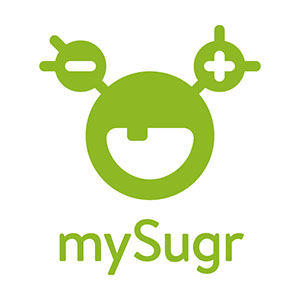
MySugr combines the fun of a video game with the serious business of controlling your blood sugars. Their motto is “We make diabetes suck less”. And for the most part, they do.
What we like: The app accommodates a mountain of information but manages to keep it all well-organized and easily understandable. There are plenty of customizable reminders. And of course, it is free.
Flaws: None worth mentioning.
2. One Touch Reveal
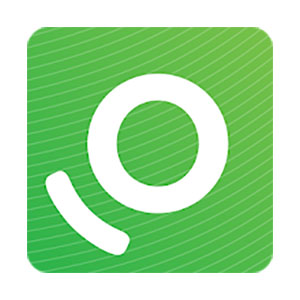
The One Touch Reveal was developed in Europe and has that clean, sophisticated European air about it. Call it the Mercedes of diabetes apps. Among other things, it uses super-sophisticated algorithms to spot problematic trends and alert you to them.
What we like: The app presents a lot of useable intel arranged in a very user-friendly way. It is simple and easy to track blood sugar levels, share info with your healthcare provider and plan your upcoming meals.
Flaws: Syncing up with a meter is not always the easiest thing to do.
3. Diabetes:M
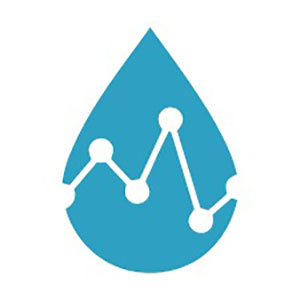
Diabetes:M free diabetes app provides a simple, intuitive way for you to monitor all aspects of your health as they relate to your diabetes. Use the data yourself or, with just a few clicks, share it with your healthcare provider.
What we like: The Diabetes:M app covers all the bases. It even allows you to enter injection sites (although only with the pay version). The food database is extensive and allows for customization.
Flaws: The free version is good but more limited than some other free diabetes apps out there.
4. Rebel + Mina Pops Diabetes App
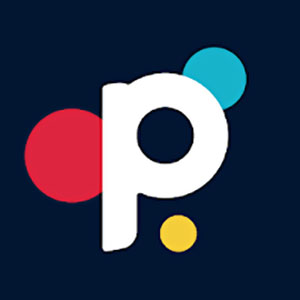
Pops Diabetes Care calls their Rebel + Mina diabetes app a virtual care system. It can be synced with the company’s testing kit to enable you to upload data directly to the app. The Mina in the name is the company’s virtual assistant.
What we like: The Pops Rebel provides a virtual assistant of sorts in the form of Mina, who helps you learn the ropes. Some will not like that. We thought it helpful. The app is designed to highlight and encourage positive behavior patterns.
Flaws: More emphasis should be placed on improving the interface and less on the cute graphics and witty comebacks.
5. Eli Lilly Glucagon App
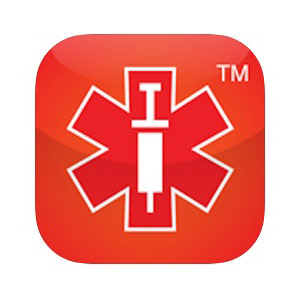
Big Pharma mainstay Eli Lilly wades into the diabetes app sector and comes up smelling like roses with their excellent Glucagon app. That they give away this important app for nothing is a feather in their corporate cap.
What we like: Everything is very clearly laid out, and the graphics are actually quite helpful. This is a potentially important tracking app for type 1 diabetes patients who need to use glucagon to raise their blood sugar in a safe and effective manner.
Flaws: There is no built-in way to alert others to where your glucagon kit is located.
6. Glucose Buddy
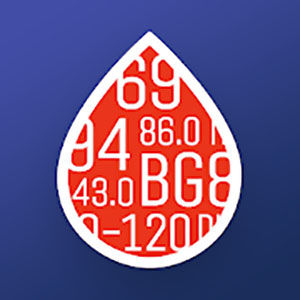
Glucose Buddy from Azumio is an easy to use diabetes app that enables access from your smartphone, tablet, or PC. It tracks a range of useful metrics that allow you to gain insight into how diet, activity, insulin use, and more are affecting your diabetes.
What we like: The app features intuitive navigation and a nice clean interface. It can track a load of different metrics associated both directly and indirectly with your blood glucose levels, including exercise habits and insulin histories.
Flaws: Some of the graphs could use a rework. They are not very easy to interpret.
7. BD Diabetes Care

The more you use the BD Diabetes Care App, the more it learns what you are all about. Its native AI keeps track of your history, trends, and mistakes and can make (mostly) helpful suggestions regarding diet, exercise, medication, and more.
What we like: The app offers personalized dietary advice. You can input data from your blood glucose monitor. It even offers helpful menu suggestions based on your meal history and blood sugar situation.
Flaws: The layout is a bit uninspiring. And there is no way to make notes about food or anything else.
8. Diabetes Connect
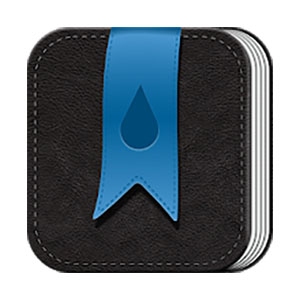
Diabetes Connect provides a free version of their app that is among the best you will find. It provides robust tracking of your blood sugars along with a couple of other metrics. And, if that is not enough, you can always update to the much more comprehensive premium version.
What we like: Provides a treasure trove of information, all very well organized. It is easy to dig deep and still keep things organized. You can leave notes, share the data, create targets, and more, all with just a few clicks.
Flaws: If you want to enjoy all the benefits Diabetes Connect has to offer, you will need to upgrade to the pay version.
9. MyFitnessPal

For those who want to integrate tracking their blood glucose levels with their other health-related activities, there is MyFitnessPal. It is not a diabetes app per se, but it will enable you to keep tabs on foods and behaviors that affect blood sugars.
What we like: An incredible wealth of food-related data. It also allows you to scan more than four million barcodes to access their nutritional information. Should you choose, you can also use it in concert with your favorite diabetes app.
Flaws: As we mentioned it is not a straight-up diabetes app. Instead, it can help you gain insight into how other things like diet and exercise influence your diabetes.
10. One Drop Mobile App
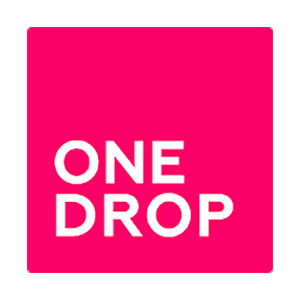
One Drop works with any late-model Android or iOS phone. It is easy to install and generates comprehensive reports you can share with your doctor or other healthcare professional. The app links seamlessly with the company’s glucose monitor too.
What we like: One Drop offers a lot of useful functionality, including the ability to set goals and track your progress in real-time. There are lots of helpful reminders, and the support staff is knowledgeable and friendly.
Flaws: The navigation has a few counterintuitive aspects that can cause you to get temporarily sidetracked.
Who Needs A Diabetes App?
If you suffer from diabetes type 1 or 2, are prediabetic, or are just concerned that your diet and lifestyle choice may be problematic, a diabetes app can help. Today’s diabetes app is more than just a way to log blood sugars. They pull data from multiple sources and use sophisticated algorithms to provide the user with a clear picture of how their choices are impacting their blood glucose levels.
In addition, more and more diabetes apps are using predictive modeling (1) to draw conclusions from that data and make useful diet and lifestyle recommendations. A diabetes app can also help you keep track of insulin use and may be able to help you reduce your dependence on insulin. And they can help prevent people diagnosed as prediabetic from developing full-blown type 2 diabetes.
How We Ranked
Technology is changing fast, and today’s cutting edge app is yesterday’s dinosaur. So trying to determine with any certainty which is the best diabetes app is a problematic enterprise. Suffice to say that the above rankings are based on the state of diabetes apps as they exist today.
When compiling our rankings, we consider a range of factors. First on our list is cost, because you should not have to pay through the nose to save your life. So companies that offer useful free versions of their apps earn bonus points. That said, we do not expect the sun and moon for nothing. And, as such, we recognize that if you want all the bells and whistles, you will probably have to pay to upgrade.
We also look at the type and quantity of data the app can process, where it pulls that data from, and how well it makes sense of it. To that end, we want to see nice clean interfaces, intuitive organization, and fonts that are big enough to read without a magnifying glass. Because older folks are often the ones with the most acute need for such apps.
If the app is able to pull data directly from a glucose meter, it earns extra points. If the same app is able to sync with an insulin pump too, even better. And finally, any diabetes app worthy of the name should also allow you to track food, make menu suggestions, and account for how the food you eat impacts your blood sugar levels.
FAQs
Q: What is a diabetes app?
A: A diabetes app is a smartphone application (2) that can be downloaded and installed on any late-model smartphone. They are typically available free of charge and only take a few minutes to set up. Some are stand-alone applications. Others are designed to integrate fully with other health-related apps. The diabetes app is designed to help people gain greater control over their condition.
Q: What does a diabetes app do?
A: A good diabetes app provides the user a way to formulate a more effective diabetes management strategy. The user can enter a variety of relevant data, and the app will use that to draw conclusions, make recommendations, and provide warnings in some cases. Some diabetes apps can be used to perform an A1C test to spot trends in your blood glucose levels. They can also be used to share information with your doctor.
Q: Are diabetes apps better today than they used to be?
A: When they first appeared, the diabetes app was little more than a digital diary of sorts. It allowed you to enter data logbook-style. But early apps could not organize data in a useful way or draw conclusions from it. Today’s diabetes apps can provide warnings, recognize trends, and make recommendations. They can also be integrated with other health-related apps to provide a big picture view of your overall health.
Q: What should I look for in a diabetes app?
A: A diabetes app should help you track your carb intake. It should allow you to upload your blood glucose monitor data. It should provide a way for you to track your carb intake. And it should compile all the data it collects in a way that enables you to see trends and patterns so you can make adjustments. It is also a big plus if the app allows you to share your data with your doctor.
Q: Will a diabetes app work on my tablet?
A: In most cases, a smartphone app will not work on a tablet. Either that or it will work poorly or look weird (3). It has been this way since both devices hit the market. That said, many developers design separate apps for the two different platforms. So, there is a decent chance there is a tablet-friendly version of the diabetes app you want. You just have to make sure you download the right one.
Q: How much does a diabetes app cost?
A: Like the majority of today’s most popular apps, most of the best diabetes apps have a free version. To gain access to more robust functionality, however, you may have to pay a few dollars per month.
Q: How can they afford to give away diabetes apps?
A: Developing apps is an expensive undertaking. But the fact is, all of the most profitable apps are free (4). So how does a free app make money? There are a number of ways. Ads are one way. In-app purchases is another (see: Netflix). And the so-called ‘freemium’ strategy is another. Freemium hooks the user with the free app and then prompts them to upgrade to the paid version.
Q: Can diabetes apps really help manage diabetes?
A: In the case of diabetes apps, the scientific jury is still out (5) regarding their value. But the general consensus among users is that these apps can help people gain greater control over their diabetes. If they use them. Simply downloading a diabetes app and installing it will not provide any benefit. The diabetic has to learn what the app can do and then incorporate it into their daily life. If they do, they stand a good chance of improving their overall health.
Q: I already take insulin. Why do I need a diabetes app?
A: Insulin by itself is not enough to bring diabetes under control. To do that, the person living with diabetes needs to carefully control what and how much they eat. They need to exercise and watch their weight. And they need to monitor things like blood pressure (6) and other key health metrics. That sounds like a lot, and it is. But a diabetes app can make it easier to do all those things.
Q: Why do I need to watch what I eat if I take insulin?
A: Again, insulin is not a one-stop-shop when it comes to treating diabetes. In fact, an ideal situation would be one where a person is able to control their blood glucose levels so effectively through diet, exercise, and other means that they would never have to use insulin. At the very least, a diabetes app can help a person with diabetes achieve greater control over all aspects of their health. As a result, they may wind up needing less insulin than they did before.
Q: Is there a cure for diabetes?
A: At this time there is no known cure for diabetes. Our knowledge and treatment of diabetes, however, has increased dramatically in recent years (7), and people with diabetes are living longer, healthier lives than ever. It is an encouraging success story, and diabetes apps are part of it. There is one worrying trend, however: the obesity epidemic has created countless new type 2 diabetes cases (8), most of which did not have to happen.
Q: Who is at risk for developing type 2 diabetes?
A: Being overweight dramatically increases the risk that a person will develop type 2 diabetes (9). The more overweight a person is, the greater the risk they will develop diabetes. Sedentary lifestyles also contribute to the risk of developing type 2 diabetes. Genetics may play a role as well. A diabetes app that enables you to keep better track of what you are eating may help prevent a person from developing diabetes.
Q: What is meant by ‘net carbs’?
A: ‘Net carbs’ is a fairly new term and was devised to account for the fact that some carbs, like fiber for instance, do not actually wind up being metabolized into fat or sugar. Instead, they simply pass through your system and are expelled almost intact. So, if you consume 100 grams of carbs, but 50 of those grams are from fiber, your actual net carb intake is 50 grams, not 100 grams.
Q: Can a diabetes app help me get prediabetes under control?
A: Some folks who learn they are ‘prediabetic’ are convinced it means that full-blown type 2 diabetes is inevitable. Fortunately, that is not the case (10). By making healthy diet and lifestyle choices, the slide toward diabetes can be halted and even reversed. A diabetes app can help you in this regard. It will allow you to track the food you are eating, monitor your blood sugar and other health metrics, and put you back on the road to robust health.
Q: Can a diabetes app help bolster my immune system?
A: When blood sugar levels are chronically high, the body becomes more susceptible to viral infections. In fact, it is now believed that high blood glucose levels may spark an immune response that causes some to get sicker from the coronavirus than others (11). By helping you bring your blood sugar levels under control, the diabetes app helps relieve pressure on your immune system so it can go back to being an asset rather than a liability.
Q: Can a diabetes app warn me of a blood sugar spike?
A: Many modern blood glucose monitors can be connected directly to your smartphone and integrated with various diabetes apps. Some apps will use the information from the monitor, as well as dietary data and more, to warn you of possible blood sugar instability. It will not predict with 100% accuracy when a blood sugar spike is coming, but it can alert you to the possibility so that you can act accordingly.
Q: What is the future of diabetes apps?
A: It is impossible to say with 100% certainty where technology is heading. After all, 20 years ago, who would have predicted the smartphone revolution? That said, in all likelihood, future diabetes apps will provide a much more robust evaluation of data than current apps do. To achieve that, they will incorporate artificial intelligence programming, as well as more extensive use of predictive modeling and predictive analytics (12).
Q: Will a diabetes app infringe on my privacy?
A: Pretty much anything to do with smartphones and smartphone apps entails a loss of privacy to some extent (13). And that is true of diabetes apps as well. Especially if you wind up sharing the information collected by the app with your healthcare provider. If you do, it is possible this data may find its way into Electronic Health Records, or EHR (14), software your doctor uses and wind up in the hands of insurance companies or others.
Related Articles
Recap
A diabetes app can make a world of difference for a diabetic attempting to bring their blood glucose levels under control. The app monitors virtually all factors that influence blood sugar levels and provides information you can use to make smart, healthy decisions.
Diabetes apps are evolving rapidly. In just the past few years, they have transformed from little more than digital notebooks to interactive programs that draw data from diverse sources and analyze that data to inform choices and improve lives.
The apps on the above list represent the state of the art in smartphone diabetes applications. As you read this, they are helping millions of people all over the world gain control of their diabetes.
For cpoe.org’s #1 recommended diabetes app, click here.

